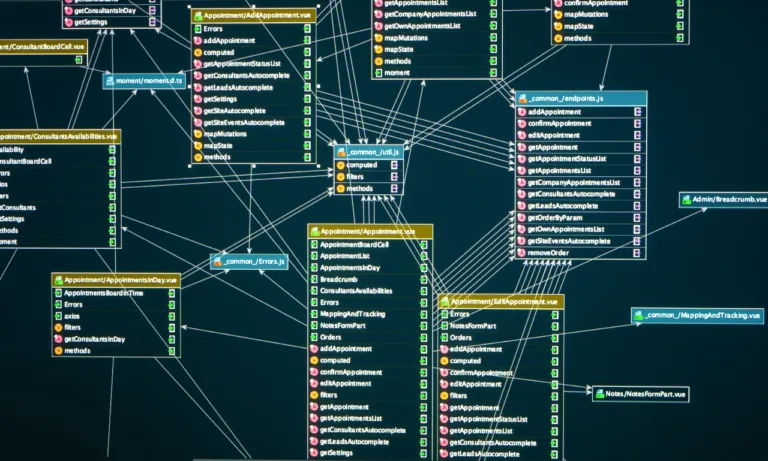Phone:
(+65)8319-0742
Debuting in 1994, the innovative concept of Cognitive Coaching in Teaching was put forth by renowned educators Arthur L. Costa and Robert J. Garmston. This approach catalyzes a transformative journey for educators, guiding them to become self-reflective, autonomous professionals. By scrutinizing the rationale behind their educational methods, teachers harness the power of self-discovery to elevate both their own professional prowess and the educational outcomes of their students. The coaching process in Cognitive Coaching is structured around three key stages: pre-conference, observation, and post-conference. These coaching sessions allow for personalized guidance tailored to individual goals. Cognitive Coaching instills a culture of metacognition, where teachers actively map their cognitive processes and engage in meaningful coaching dialogues. This introspective practice surfaces areas ripe for improvement, solidifying Effective Teaching Strategies with Cognitive Coaching as a foundational element in the advancement of scholarly quality.
The extensive library of Cognitive Coaching Resources supports this pedagogical shift, equipping educators with the necessary tools to refine their instructional approaches. This cultivates a learning environment rich with critical thinking, innovation, and a deep-seated commitment to student success. As we delve into the intricacies of Cognitive Coaching, let’s discover how it shapes the educators of tomorrow, fostering an academic landscape of excellence and growth.
Key Takeaways
- Originated by Arthur L. Costa and Robert J. Garmston, Cognitive Coaching transforms educators into self-reliant and reflective professionals.
- Cognitive Coaching encourages educators to develop their cognitive maps, leading to autonomous and effective teaching strategies.
- Critical reflection during coaching conversations uncovers developmental opportunities, enhancing teaching practices and student learning experiences.
- A wealth of Cognitive Coaching Resources is available, providing educators with the support needed for continuous professional development.
- Implementing Cognitive Coaching in teaching is a proven methodology to foster educational innovation and meet the diverse needs of students.
Introduction to Cognitive Coaching in Teaching
In the pursuit of elevating educational practices, the realm of Teaching with Cognitive Coaching has garnered significant attention. This innovative approach underpins contemporary efforts directed at Professional Development in Cognitive Coaching and seeks to transform the landscape of modern pedagogy.
The Concept and Origins of Cognitive Coaching
Initially conceptualized by Arthur L. Costa and Robert J. Garmston, Cognitive Coaching emerged as a transformative model for educators. Its primary aim is to establish a foundation for intentional internal dialogue, empowering teachers to critically assess and subsequently refine their instructional methodologies. The coaching framework prompts educators to rigorously explore and augment their cognitive processes, thus enhancing teaching efficacy.
The Role of Cognitive Coaching in Modern Education
The integration of Cognitive Coaching Techniques within educational settings has proven highly beneficial. Not only does it contribute to the advancement of teacher autonomy, but it also nurtures an environment ripe for reflective thought and self-aware practices. In diverse classroom scenarios, these techniques encourage educators to identify and cater to individual learning needs, thereby fostering a thriving educational atmosphere conducive to student success.
Implementing Cognitive Coaching in Professional Development

Engaging in Professional Development in Cognitive Coaching is not just about learning new strategies; it’s about embodying a model of continuous improvement. This commitment is core to the Benefits of Cognitive Coaching in Education and is the foundation upon which teachers can build enduring skills for the classroom. Let’s delve into how a professional framework for Cognitive Coaching can be structured for success.
Planning, Observing, and Reflecting: The Three Types of Conversations
To wholly integrate the principles of Cognitive Coaching Models, we observe a trisected approach: planning, observing, and reflectingâeach serving a dedicated purpose in the growth trajectory of educators.
- Planning Conversations set the stage for lesson execution by identifying objectives and methods.
- Observing Conversations offer real-time insights into the practical application of teaching methods.
- Reflecting Conversations provide a platform for analysis and self-awareness post lesson delivery.
Through these iterative phases, teachers receive supportive coaching that is inherently formatted to bolster their cognitive and instructional proficiencies.
Case Studies: Success Stories of Cognitive Coaching Applications
This pedagogical triptych of conversations underpins numerous success stories in the realm of education. By relaying instances where Cognitive Coaching Models have reshaped teaching practices, we illuminate the tangible Benefits of Cognitive Coaching in Education.
| Case Study | Intervention | Result |
|---|---|---|
| Smith High School | Integration of weekly planning conversations | 20% increase in student engagement |
| Greenwood Elementary | Observation feedback loops for new educators | Enhanced instructional strategies and class management |
| Jordan Middle School | Monthly reflective sessions on teaching practices | Improved teacher self-efficacy and student performance |
The data distilled from these case studies not only showcase the Cognitive Coaching Models in action but also highlight the scope of Professional Development in Cognitive Coaching as a transformative conduit for education effectiveness. Indeed, weaving the fabric of these coaching conversations into the professional growth of teachers yields a more dynamic, responsive, and ultimately beneficial educational environment for all stakeholders.
Effective Teaching Strategies with Cognitive Coaching

The implementation of Cognitive Coaching Techniques has marked a significant advancement in the realm of pedagogy. Educators who utilize Effective Teaching Strategies with Cognitive Coaching find themselves equipped with the skill to promote and sustain their own and their students’ learning. Let’s delve into how these strategies are shaping the educational landscape:
Central to Cognitive Coaching is the belief that teaching is inherently a reflective practice. By fostering an environment where open dialogue and self-examination are the norms, educators are encouraged to pinpoint and develop their teaching strategies. Moreover, Cognitive Coaching Resources play a crucial role in this endeavor, offering a scaffold for teachers to build and refine their instructional methods in alignment with modern educational demands.
- Exploring personal teaching philosophies to connect with cognitive pathways
- Engaging in coaching cycles that promote critical analysis and insightful dialogue
- Customizing curriculum delivery to match pedagogical goals
- Balancing factual knowledge with a comprehensive educational framework
The table below contrasts traditional teaching strategies with those empowered by cognitive coaching, highlighting the dynamic flexibility and tailored approach that cognitive coaching brings to education:
| Traditional Teaching Strategies | Cognitive Coaching Empowered Strategies |
|---|---|
| Standardized instructional methods | Adaptive and personalized teaching approaches |
| Curriculum-focused delivery | Student-centered and curriculum-aligned delivery |
| Fixed assessment criteria | Flexible and reflective assessment practices |
| Teacher-directed classrooms | Learner autonomy and teacher facilitation |
By integrating Cognitive Coaching Techniques, teachers mold an enriched learning environment that is receptive to the ever-evolving dynamics of the classroom. It’s clear that the synergy between Effective Teaching Strategies with Cognitive Coaching and access to robust Cognitive Coaching Resources paves the path for a transformative educational experience that benefits all stakeholders in the learning process.
Cognitive Coaching for Teacher Growth: Techniques and Benefits

Embracing Cognitive Coaching for Teacher Growth is a transformative process that not only strengthens educators’ metacognitive awareness but also cultivates an environment conducive to continual professional development. This dynamic approach to teaching offers a multitude of Benefits of Cognitive Coaching in Education, including the refinement of instructional techniques and a commitment to lifelong learning among educators.
Empowering Educators Through Self-Directed Growth
One of the core objectives of Cognitive Coaching is to empower teachers towards self-directed growth. It equips educators with the strategies needed to self-monitor, critically analyze, and adapt their teaching styles to meet the evolving dynamics within the classroom. This process relies on a robust foundation of Cognitive Coaching Resources that encourage reflective practices and promote a responsive educational approach tailored to diverse learning needs.
How Cognitive Coaching Promotes Stronger Educator-Student Relationships
The ripple effect of an empowered educator extends well beyond personal proficiency, impacting the very fabric of educator-student relationships. Through Cognitive Coaching, teachers acquire the skills to engage students more effectively, creating a learning atmosphere that prioritizes equitable attention and support. This leads to learning scenarios where students feel valued and motivated, underlining the central role of educators in fostering achievement and holistic development.
Ultimately, Cognitive Coaching champions a personalized teaching philosophy grounded in the awareness of one’s cognitive and emotional resources. It’s a strategic paradigm that not only heralds growth for teachers but also serves as a catalyst for cultivating future-focused, empathetic, and engaging educational environments. By valuing and nurturing the pivotal relationship between educator and student, Cognitive Coaching underscores its commitment to excellence in the educational sphere.
Conclusion
The landscape of education consistently evolves, necessitating adaptive strategies that cater to both educators and students. Cognitive Coaching emerges as a robust route towards Professional Development in Cognitive Coaching that is not merely formative but transformative as well. Teachers who engage in this reflective practice cultivate their core skills and develop a deeper understanding of their professional pedagogy, leading to a notable growth in teacher capabilities
As we dissect the layers of Cognitive Coaching for Teacher Growth, we observe a pattern of continuous enhancement that extends beyond the rudimentary goals of education. It forges a path for educators to become insightful mentors, capable of steering students towards significant academic and personal victoriesâa testament to the Benefits of Cognitive Coaching in Education. Through thoughtful introspection and a commitment to self-improvement, teachers are sculpted into architects of learning who can navigate the intricate dynamics of classroom engagement with finesse.
Ultimately, Cognitive Coaching stands out as an educational cornerstone that reinforces the wisdom in introspection, the power of communication, and the magic of tailored teaching strategies. These are the ingredients that shape the educational experiences of tomorrow, readying educators to advance confidently into a future where their impact echoes in the improved outcomes and lives of their students. This approach to professional development is not just about teaching; it’s about paving the way for a legacy of knowledgeable, compassionate, and capable learners.
FAQ
What is Cognitive Coaching in teaching?
Cognitive Coaching is a model of professional development in teaching that focuses on enhancing educators’ abilities to be self-directed, self-managing, and self-modifying. It emphasizes the importance of internal dialogue and reflection on one’s teaching practices to foster continuous growth and effectiveness in educating students.
Who introduced Cognitive Coaching in education and why?
Arthur L. Costa and Robert J. Garmston introduced Cognitive Coaching in education in 1994 with the aim of transitioning teachers into more autonomous professionals. They emphasized the need for self-reflection and the exploration of the thinking behind teaching practices to improve educational quality.
How does Cognitive Coaching benefit teaching and learning?
Cognitive Coaching benefits teaching and learning by promoting teacher autonomy, enabling educators to self-monitor, analyze, and evaluate their own teaching methods and classroom dynamics. This leads to more personalized teaching approaches, better student engagement, improved teacher-student interactions, and ultimately a higher quality of education.
What are some effective teaching strategies associated with Cognitive Coaching?
Effective teaching strategies associated with Cognitive Coaching include the alignment of instructional methods with teachers’ core philosophies, engaging in analytical self-examination, broadening instructional capabilities, and addressing the specifics of curriculum delivery while maintaining a balance with a broader pedagogical vision.
Can Cognitive Coaching enhance educator-student relationships?
Yes, Cognitive Coaching can significantly enhance educator-student relationships. It assists teachers in becoming more metacognitively aware, thus crafting teaching approaches that address varied student needs and encourage higher quality teacher-student interactions conducive to achieving learning objectives.
What does professional development through Cognitive Coaching involve?
Professional development through Cognitive Coaching involves a cyclical model that includes planning, observing, and reflection. These conversations help educators clarify goals, observe the implementation of teaching practices, and reflect deeply on the effectiveness of lesson plans and interactions. This model aims to equip teachers with refined skills necessary for enhancing educational strategies.
Are there resources available for educators interested in Cognitive Coaching?
Yes, there are numerous Cognitive Coaching resources available for educators. These can range from training workshops and certification programs to books, academic articles, online courses, and peer coaching communities. Educators can access these resources to learn Cognitive Coaching techniques and models, and to integrate them into their professional practice.
What makes Cognitive Coaching different from other forms of teacher professional development?
Cognitive Coaching is unique in its approach as it centers on the cognition and metacognition of educators. It moves beyond traditional skill-based professional development, encouraging deep reflection and self-awareness among teachers. This form of coaching cultivates an internalized process of professional growth that is self-sustaining and focused on the cognitive aspects of teaching.

















